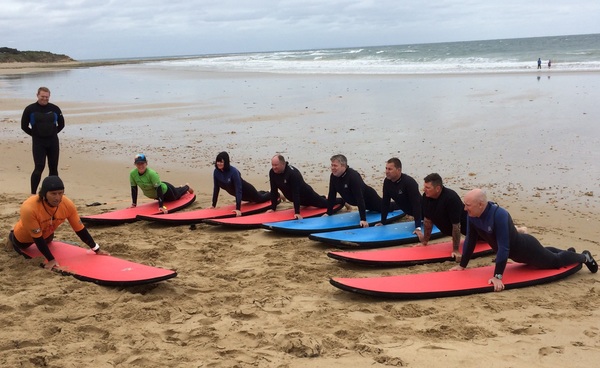By Luke Voogt
Local war veterans are reconnecting with the civilian world one wave at a time, thanks to RSL-backed surf sessions.
Psychologist and veteran Tavis Watt said catching a break could help former soldiers cope with post-traumatic stress disorder (PTSD).
“With PTSD you’re dealing with intrusions and nightmares,” he said.
“But when you’re on that wave you’re living in the moment, rather than reliving the past.”
Surfing is the first activity in the pilot program which Geelong RSL launched late last year. The program will include other activities like archery and zip-lining.
“These guys are buzzing after each session,” Mr Watt said. “It’s a real buzz to see it, too.”
The RSL hopes to spread the program to the rest of Victoria following a $400,000 State Government grant.
Mr Watt said many veterans struggled with PTSD symptoms including “hyper vigilance” and depression.
“They can’t reconnect because they’ve been involved in things you can talk about with a general audience. People who have toured third world countries have trouble adapting to first world problems.”
Mr Watt served as an army psychologist on seven tours of Afghanistan, helping soldiers cope with the horrors of war.
“At the end of the day war is a violent thing and you’re training people to do things that don’t come naturally to the average person.”
Spending time with others who have experienced war zones can help veterans, he said.
“They share similar senses of humour and coping strategies.”
The Torquay psychologist, who still serves in the Reserves, runs workshops for the RSL covering topics from coping in crowds to dealing with government agencies.
RSL welfare officer Toni Podbury said Greater Geelong had the highest number of Veterans Affairs clients in Victoria (the municipality is also one of the state’s most populated).
She said this made the city a great location for the “ground-breaking and innovative new program”.
“These young men and women have led a structured and regimented life years and their re-entry into civilian life can be unsettling and confusing.”







